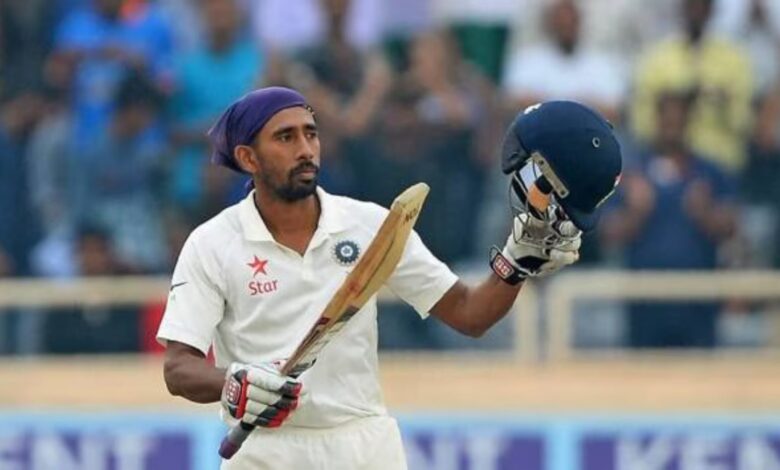Sourav Ganguly reason behind Wriddhiman Saha’s extra season for Bengal: ‘It was because of emotional attachment’ | Cricket News

Former Indian wicket-keeper batter Wriddhiman Saha was one of the finest keepers in Indian domestic cricket. His keeping technique both to spin bowling on dust bowls and pacers on green seaming wickets has been impeccable. He also had a knack for scoring some useful contributions down the order. Earlier the 40-year-old announced his retirement from domestic cricket.
Saha acknowledged that it was Sourav Ganguly who pushed the veteran keeper to play in the current domestic season despite his body’s injury-prone condition. “You can say it was because of emotional attachment I wasn’t going to play this year but Sourav Ganguly and my wife pushed me to play and finish with Bengal after two seasons with Tripura,” he said as quoted ESPN Cricinfo. In 138 First Class games, Saha scored 7013 runs at an average of 41.74 which included 14 hundreds and 43 fifties.
Saha has moved to represent Tripura for the last couple of seasons however, he returned to Bengal for his farewell season. “I’ve been pushing myself for the last year. But because of my body condition and injuries, I won’t be able to play for the full season,” he says. “That’s why I chose the most vital format – the Ranji Trophy. It will be tough [to carry on] but I will play and hopefully, we qualify. If we do, I will play till the end of the season, else I’ll finish off at Eden Gardens,” he added.
Despite being technically sound as a keeper Saha could not make it to the Indian side consently because of players like MS Dhoni in the early part of his career and Rishabh Pant later on who had better batting capabilities. When asked if Saha would conisder himself unlucky he would say, “There are so many of them who didn’t play despite toiling so hard. Amol Muzumdar, Padmakar Shivalkar sir. I feel fortunate and proud to have played 40 Tests for India.”
In 40 Test matches for India Saha scored 1353 runs at an average of 29.71 with three tons and six half-centuries.



